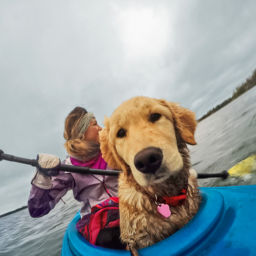by Guest Blogger Henley Spiers
Maybe you see it as the first step in starting a professional dive career. Or perhaps you just want a new experience that will push your dive skills to the next level. Maybe you just hope that by tagging “divemaster” before your name it will render you irresistible to the opposite sex. Regardless of your motivation, the next step is finding the right place and course to do it. As someone who’s been through that dilemma personally and is specialized in training divemasters over the last couple of years, I’m here to offer some guidance on making the right choice.
First off, this is not a “one size fits all” kind of situation. Different people have different priorities, which means there are many outcomes when it comes to which course to take and where to take it. In this article, I’ll lay out the key factors to consider when choosing your divemaster course. From there, it’s up to you to make a final decision. And since this is not an exercise in advertising, I won’t be discussing specific dive shops and courses.
In no particular order of importance, here’s what you should consider:
• Location: Where do you want to take your divemaster course? Is it an opportunity to travel to a new, exotic location? Or due to time and/or budget considerations do you need to fit your course in over weekends somewhere closer to home?
• Weather: For a lot of people (myself included), diving offers an opportunity to escape the dreary weather of home for a sunny, turquoise paradise. If this is an important factor for you, then make sure you research both diving and the weather conditions in the place you’re considering taking the course.
• Lifestyle: I spent my divemaster internship on a small desert island with no roads and a barren bedroom with a couple of cockroaches for companions. It was bliss for me, but probably not everyone’s cup of tea. Carefully consider what lifestyle you want to experience during your divemaster internship. Are you looking for the full Tom Hanks ‘Castaway’ experience? Or do you envision yourself someplace closer to civilization with air conditioning, hot showers, good wifi, a gym, shopping, good restaurants, etc.? Be aware that the accommodation usually offered to divemaster trainees is fairly spartan and budget-minded. If you’d rather spend your holiday and training in greater comfort, most places can cater for it but it’s a good idea to start that conversation early. Finally, divemaster is a really fun and social course which typically includes a fair amount of extracurricular partying. If that’s what you’re looking for, then places such as Utila, Koh Tao and Gili Trawangan will keep you very busy, indeed. On the other hand, qualifications earned in these popular party locales may be looked upon dubiously by certain dive pros. Yes, this kind of generalization is unfair. But it is nonetheless something you should factor into your decision-making. If you want to focus mainly on the training and aren’t too keen on partying, then find a dive shop and location that best suits those needs.
• The Diving: Perhaps completely outweighing all of the previous considerations is one simple question: How good is the diving where you’re going? Your divemaster course is an incredible opportunity to spend every day diving in some of the most beautiful locations in the world at a relatively inexpensive rate. When researching the quality of diving around the world, don’t just trust dive shop and tourism board websites as their flowery descriptions tend to make even average dive regions sound spectacular. Contact some of the more experienced divers you know and get their opinions. The diving world is a small and well-connected one, and chances are friends or friends-of-friends have been to the places you’re researching. Also consider what type of diving you enjoy most or are looking to experience. Are you a wreck fiend? Love the muck? Happiest on a healthy coral reef? Just want to see big stuff? Whatever you fancy, make sure your chosen location can cater to it. If you’re unsure, then look for somewhere that provides world class diving with a variety of underwater settings.
• Personal Motivation: To get the most out of your divemaster course, you should carefully consider why you want to do it. Is it the first step in a long professional dive career? If so, make sure you’re receiving reputable, top-notch training that will build your skills and employment opportunities. Are you a passionate diver who just wants to test out the professional waters before quitting your office job? In that case, find a divemaster internship that provides a realistic experience of life as a dive pro. For example, in my last job all divemaster trainees were expected to be at the shop by 6AM to carry tanks and weight belts in preparation for dive trips. Their working day would finish after washing all the gear some 10 to 12 hours later. While the days are fun, the work is hard and not as glamorous as it seems – in other words, it’s a realistic experience of life working in the dive industry! If that doesn’t sound like much of a holiday and you simply want to use the divemaster course as a way to improve your diving skills while having a good time, then find a course and dive center with a more relaxed approach.

That’s all for now. In Part 2 of this series, I’ll be looking at the factors to consider when it comes to choosing a specific dive shop and a particular course.


